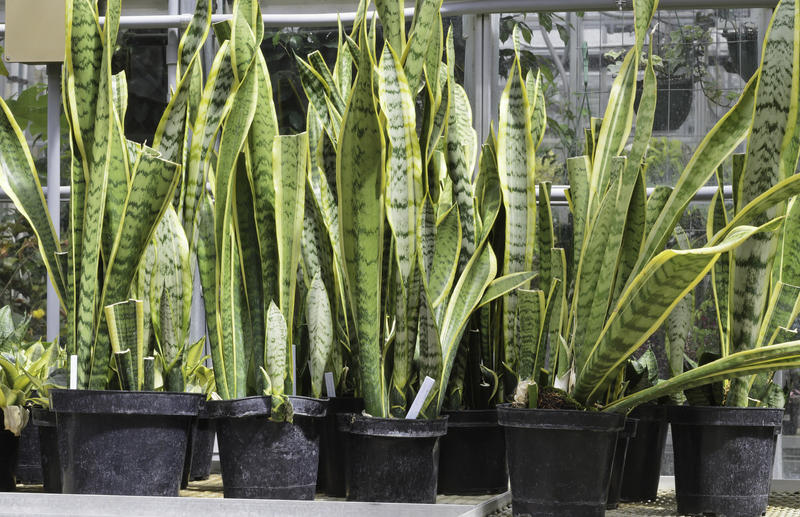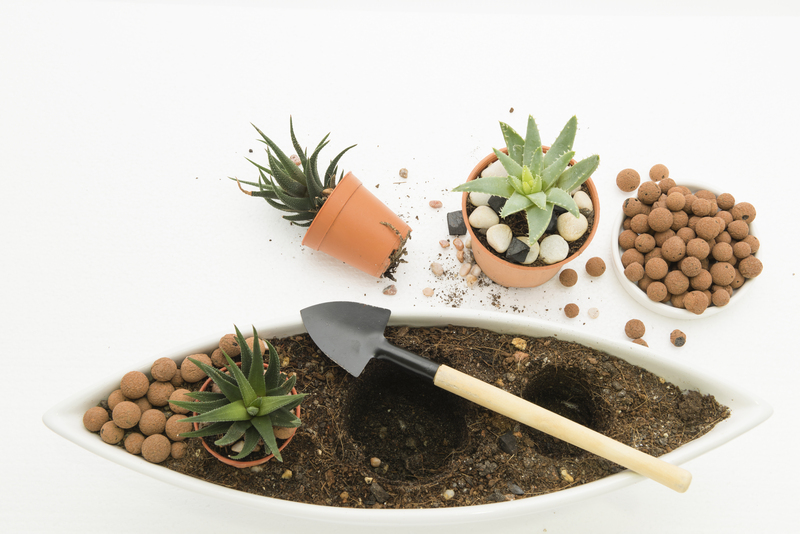3 Game-Changing Tips for Effective Weed Management
Posted on 02/06/2025
3 Game-Changing Tips for Effective Weed Management
Weeds can be the bane of any gardener or farmer's existence. They compete with your crops or ornamental plants for nutrients, sunlight, and water, often outpacing them with rapid growth. Effective weed management is more than just pulling out unwelcome greenery--it's about understanding how weeds work and developing a holistic strategy to keep them in check all year round. In this comprehensive guide, we'll share three game-changing tips for effective weed management, drawn from research and real-world experience. These techniques will not only help control existing infestations but also prevent future weed issues, keeping your garden or fields flourishing.
Why Effective Weed Management Matters
Before we delve into the core weed management tips, let's examine why controlling weeds is crucial:
- Resource Competition: Weeds steal vital nutrients, water, and sunlight from your desired plants.
- Pest and Disease Havens: Many weeds harbor pests and pathogens, increasing the risk of crop damage.
- Yield Loss: In farming, unchecked weeds can drastically reduce crop yields and quality.
- Aesthetic Impact: In lawns and gardens, weeds disrupt the appearance and health of your landscapes.
Understanding the stakes drives home the significance of implementing effective weed control strategies .

Tip 1: Cultivate a Healthy, Dense Canopy
The Role of Plant Density in Weed Suppression
One of the most powerful yet often overlooked principles of weed management is the concept of outcompeting weeds by creating a healthy, dense plant canopy. A full and lush plant stand shades the soil, making it difficult for weed seeds to receive the light and warmth they need to germinate and grow.
- Thick Mulching: Apply 2-4 inches of organic mulch (like straw, wood chips, or shredded leaves) in garden beds. This not only deprives weeds of light but improves soil moisture and health.
- Close Plant Spacing: In vegetable beds, flower gardens, and even row crops, adhere to recommended plant spacings. Some crops, like lettuce or spinach, can be spaced a bit closer to boost ground cover and hence weed suppression.
- Ground Covers and Green Manures: Use fast-spreading ground cover plants or sow green manures (cover crops) in the off-season, such as clover, vetch, or rye. These not only block weeds but add nutrients to your soil.
Did you know? Living mulches such as creeping thyme or white clover around perennial beds provide continuous weed management, requiring less labor than regular weeding and re-mulching.
Benefits of a Dense Canopy
- Minimizes weed seed access to sunlight
- Reduces soil temperature fluctuations
- Limits open spaces for weed emergence
- Maintains soil moisture, benefitting your choice plants
By harnessing the natural power of your plants, you create a proactive weed management system that saves time, labor, and money in the long run.
Tip 2: Use an Integrated Weed Management (IWM) Approach
What is Integrated Weed Management?
Integrated Weed Management (IWM) is a comprehensive approach combining multiple weed control methods to achieve sustainable results. Instead of relying solely on one tactic (like herbicides or hand-pulling), IWM advocates using cultural, mechanical, biological, and chemical methods in synergy.
- Cultural Controls: Selecting weed-competitive crop varieties; crop rotation; adjusting planting and irrigation schedules.
- Mechanical Controls: Tillage, hoeing, mowing, flame weeding, and hand-weeding.
- Biological Controls: Leveraging natural weed predators or pathogens, like insects or fungi, which specifically target invasive weeds.
- Chemical Controls: Judicious use of herbicides when necessary and only according to the label instructions and local regulations.
Building an Integrated Weed Management Program
For effective weed management, it's crucial to observe your landscape or field and tailor control methods to your environment. Here's how to implement IWM:
- Map Your Weeds: Identify the most problematic weed species and monitor their growth patterns. Some species germinate at specific times of year or under particular conditions.
- Rotate Crops: Changing crop types and locations annually disrupts weed lifecycles. For example, alternating deep-rooted and shallow-rooted plants exposes weed seeds to different soil depths and farming practices.
- Time Your Controls: Apply mechanical or chemical controls when weeds are young and more vulnerable. Early intervention prevents seed set and future infestations.
- Encourage Beneficial Organisms: Integrate plants and habitats that attract weed-eating insects or birds.
- Spot-Treat Rather than Blanket Spray: Targeted applications decrease herbicide resistance risk and reduce environmental impact.
Research shows that diversifying weed control techniques in an IWM program significantly improves long-term effectiveness and sustainability. By combining tactics, you strike at weeds from multiple angles, overcoming their natural resilience.
Addressing Herbicide Resistance
A critical concern in modern agriculture is the rise of herbicide-resistant weed species. Rotating herbicide modes of action and relying less on chemicals by incorporating physical and biological controls helps preserve effectiveness for years to come.
Tip 3: Prevent New Weed Infestations
Prevention is the Best Defense in Weed Management
The most effective form of weed management is prevention. Many persistent weed issues begin with unintentional introductions--contaminated seeds, soil, transplants, or equipment. Stopping new weeds before they establish saves you time and effort for seasons to come.
- Use Certified Clean Seed and Mulch: Always purchase seeds, mulch, and compost from reputable suppliers. Certified products are inspected for weed seeds and pathogens.
- Clean Tools and Equipment Between Sites: Soil and debris hitchhiking on shovels, tillers, or boots often contain viable weed seeds. Simple washing or brushing can prevent this.
- Insist on Weed-Free Transplants: Inspect nursery plants carefully before introducing them into your garden. Remove any suspicious seedlings in the pot.
- Manage Borders and Pathways: Keep the edges of your fields, lawns, and paths trimmed and mulched. Weed seeds can quickly migrate from unmanaged edges into your cultivated areas.
Did you know? Just one mature dandelion can disperse over 2,000 seeds in a single season. Stopping one plant can prevent an entire future generation of weeds!
Early Detection and Rapid Response
Make it a habit to walk your property weekly--especially in early spring and after heavy rain. Spotting a few new weed seedlings and removing them before they mature is far easier than tackling a full-blown infestation. Regular vigilance allows you to adapt your weed management strategy when needed, staying ahead of the problem.

Bonus: Embrace Sustainable Weed Control Practices
While not a core tip, sustainability deserves its own mention in any discussion of effective weed management. Avoid excessive reliance on chemical herbicides, many of which harm beneficial insects, deplete soil health, or pollute waterways. Organic weed management--through mulching, solarization, cultivation, and use of cover crops--can be just as powerful, especially when integrated with other methods.
- Mulching with biodegradable materials returns nutrients to the soil.
- Solarization (covering moist soil with clear plastic on hot days) destroys weed seeds without chemicals.
- Hand-pulling, though labor-intensive, ensures you get roots out and is best combined with prevention tactics.
Wrapping Up: Your Path to Weed-Free Success
In summary, effective weed management isn't about a one-size-fits-all solution or quick fixes. By understanding weed ecology and leveraging smart, integrated strategies, you give your plants the best chance to thrive. Here's a quick recap of the 3 game-changing weed management tips:
- Cultivate a dense, healthy canopy to naturally suppress new weeds.
- Adopt an Integrated Weed Management approach that combines cultural, mechanical, biological, and, if necessary, chemical controls.
- Prioritize prevention by ensuring clean inputs, managing the boundaries, and catching weeds before they seed.
Consistent, thoughtful weed management will yield a more productive, healthy, and beautiful space, whether you're raising vegetables, flowers, or crops. Take the time to implement these game-changing weed management strategies, and enjoy a season--and future--free from nuisance weeds.
Want to Learn More About Weed Management?
For more tips, seasonal advice, and detailed guides on effective weed control, subscribe to our newsletter or explore related resources on our website. Your journey to a weed-free, thriving garden or farm starts with a single step--make it a strategic one!
Latest Posts
Elevate Your Garden with Expert Hedge Trimming
Designing a Garden That Inspires Children's Curiosity
From Neglect to Bloom: Initial Steps for a Garden Makeover

